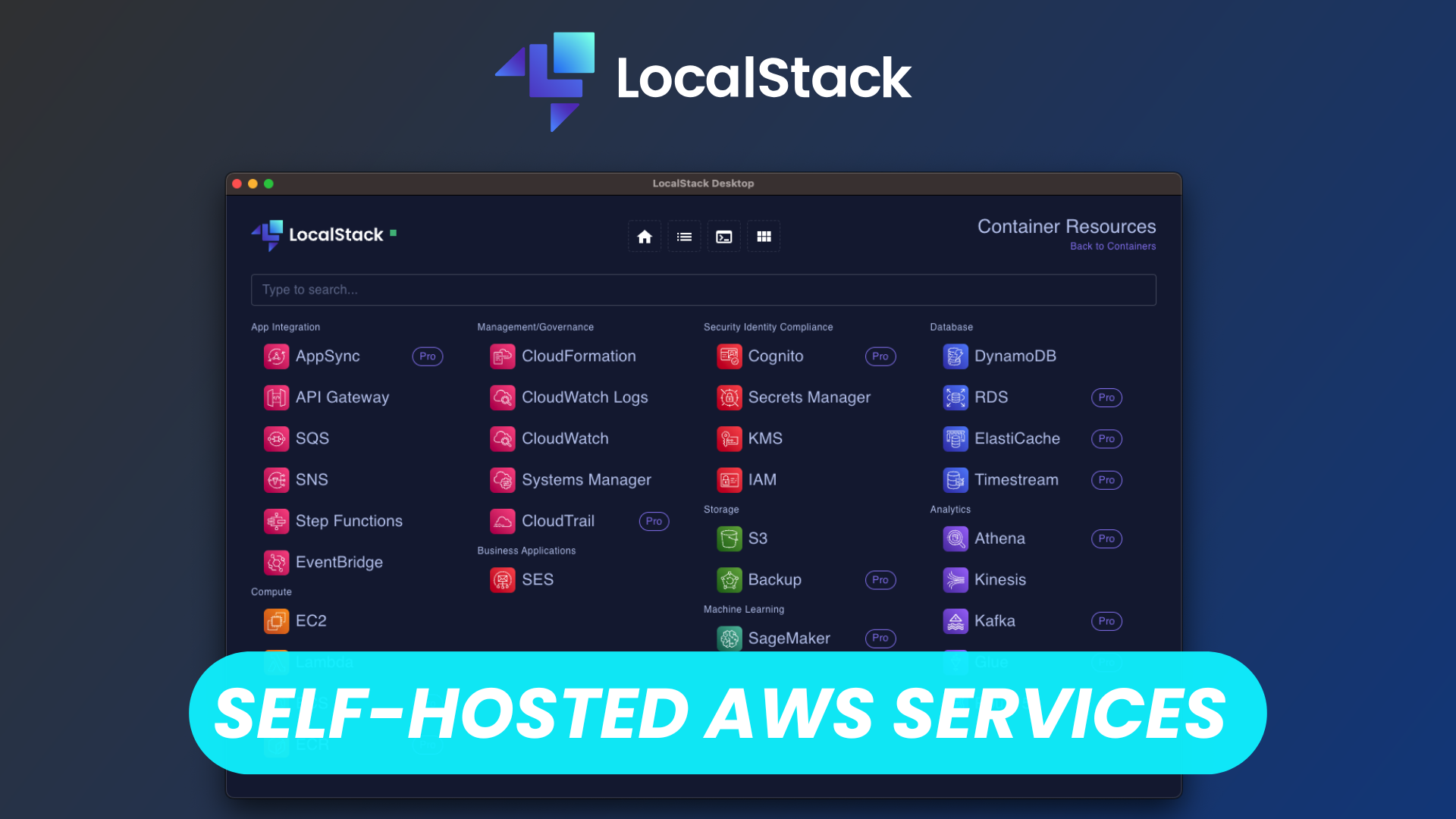LocalStack: Free Open Source Self-Hosted AWS

Building, testing, and iterating on cloud-native applications can become expensive and slow—especially when every change requires hitting real AWS services. LocalStack solves this problem by offering a fully local, self-hosted AWS cloud environment that mirrors the behavior of real AWS APIs.
LocalStack enables developers to run AWS services on their machine or in their CI environment, drastically reducing costs, improving development velocity, and enabling repeatable, isolated environments that behave consistently across teams. It’s open source, fast to start, and designed to feel like the real AWS ecosystem—minus the AWS bill.
Watch our platform overview on our YouTubeChannel
AWS CLI Compatible
One of LocalStack’s biggest strengths is its compatibility with the AWS CLI and SDKs. Instead of modifying your workflows, LocalStack integrates directly with the same commands, calls, and interactions you already use with AWS.
This means teams can test infrastructure-as-code templates, cloud workflows, and microservices against local AWS endpoints without adjusting deployment logic. Whether you're working with Terraform, Pulumi, CDK, or plain AWS APIs, the local environment behaves predictably and enables a smooth transition between development and production.
The result: faster iteration cycles, safer experimentation, and zero risk of unintentionally modifying real cloud resources during development.
DynamoDB
LocalStack includes a fully local version of DynamoDB, allowing developers to design and test scalable NoSQL applications without provisioning resources in the cloud.
You can create tables, design partition keys, iterate on schema patterns, simulate high-throughput scenarios, and validate your data-access logic—all in a self-contained environment.
For teams building event-driven systems or microservices relying heavily on DynamoDB streams and consistent-read patterns, LocalStack brings high realism to local testing, helping ensure your logic behaves the same way it will in AWS.
AWS S3
Object storage is core to many cloud applications, and LocalStack’s S3 implementation lets you build around it with confidence.
You can create buckets, store objects, test upload flows, simulate permission constraints, and validate lifecycle logic—all locally. This is particularly useful for applications that coordinate with S3-triggered workflows, large-file processing, or automated backups.
By running S3 locally, your CI pipeline becomes faster, your integration tests are more predictable, and your team avoids unnecessary cloud storage costs during development.
LocalStack Desktop & Client Console
LocalStack also offers a Desktop application and a web-based Client Console, providing a visual interface to interact with your local AWS environment.
Instead of inspecting services purely through CLI interactions, you can browse resources, inspect S3 buckets, review DynamoDB tables, manage configuration, and monitor service activity in real time.
For teams that want transparency, easier debugging, and a friendlier onboarding experience for new developers, the Desktop and Console features make the whole ecosystem far more accessible and collaborative.
Conclusion
LocalStack has become a foundational tool for modern cloud development teams. By providing an open-source, self-hosted AWS environment, it eliminates unnecessary cloud costs, accelerates iteration cycles, and makes testing more predictable.
Whether you're building serverless applications, microservices, data pipelines, or complex AWS infrastructure, LocalStack gives you a powerful, reproducible sandbox to experiment, validate, and ship with confidence.
It’s one of the best ways to bring the power of AWS development closer to your local machine—without sacrificing compatibility or scale.

